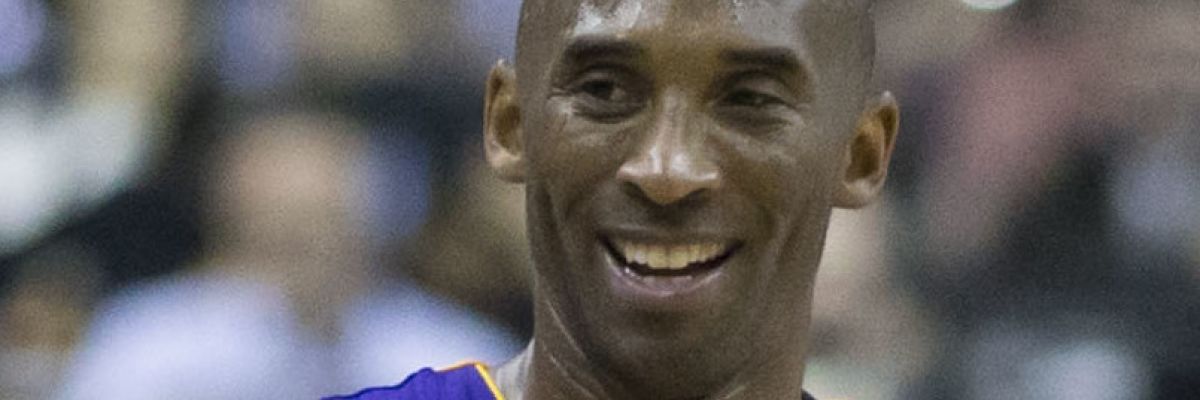
The sudden deaths of basketball legend Kobe Bryant, his thirteen-year-old daughter Gianna (or “Gigi” as she was known), and seven others in a helicopter crash this past Sunday morning, January 26, has dominated world headlines.
For a generation of current NBA players and fans, Kobe was their Michael Jordan, the brightest star of his era—the eighteen-time All-Star and five-time champion with the only pro team he ever played for, the Los Angeles Lakers—and his loss hit them especially hard. Jerry West, who helped broker the trade that brought the teenaged Bryant to the Lakers after he had been drafted by Charlotte, referred to Kobe’s death as akin to the loss of a son.
Kobe, of course, was a father himself, to Gigi and three other daughters, the youngest of whom was born seven months ago. As ESPN’s Elle Duncan poignantly recalled, Kobe took great pride in being a father of girls. He championed their athletic ambitions (Gigi had hoped one day to play for the famed UConn Huskies at the NCAA level) and was a vocal and visible supporter of the WNBA, often seen courtside with Gigi at L.A. Sparks games, explaining the fine details of the sport.
Of course, one can’t speak of Kobe’s legacy without mention of the events that occurred in 2003 in Eagle County, Colorado, when the married Bryant was accused of sexually assaulting a female employee of a resort where he was rehabbing a knee. The troubling details and the botched handling of the case by court officials have been well documented. The criminal case was dropped after Bryant’s accuser refused to testify, but a settlement (including a non-disclosure agreement) was negotiated after a civil lawsuit was filed. Bryant took the unusual step of issuing a public apology to the woman after the criminal proceedings were dismissed.
Although these events are a part of Kobe’s life that ought not be glossed over, the eternal verdict on a person’s life—which only almighty God can adjudicate—must take into account the totality of one’s life choices and the sincerity of one’s repentance played out over a lifetime, for “love is deeds and not sweet words.” And while only God knew the state of Kobe’s soul, one truth about him that is becoming more widely known is this: he was Catholic.
Early on his last Sunday morning, Kobe was seen praying in his home parish of Our Lady Queen of Angels in Newport Beach prior to the fateful helicopter ride en route to a youth basketball event. After the accident, anecdotes began to appear on Twitter about Kobe’s frequent attendance at daily Mass in the L.A. area, where he avoided (as much as is possible for a 6’6”, world-famous athlete) drawing undue attention to himself and away from the action on the altar.
In 2015, Kobe gave an interview to GQ magazine in which he related the encouragement he received from a priest in the struggle to rebuild his strained marriage following the events of 2003. In that piece, writer Chuck Klosterman noted that Kobe’s famous work ethic and competitiveness gave him an advantage in fighting to keep his family intact throughout the years:
In 2011, Bryant’s wife Vanessa filed for divorce, citing irreconcilable differences. Yet those differences were reconciled thirteen months later. They remain a married couple. ‘I’m not going to say our marriage is perfect by any stretch of the imagination,’ Kobe says. ‘We still fight, just like every married couple. But you know, my reputation as an athlete is that I’m extremely determined and that I will work my (expletive) off. How could I do that in my professional life if I wasn’t like that in my personal life, when it affects my kids? It wouldn’t make any sense.’ The logic is weirdly airtight: if we concede that Kobe would kill himself to beat the Celtics, we must assume he’d be equally insane about keeping his family together.”
Indeed, Kobe’s love for his family—and especially his daughters—was well known.
Was Kobe Bryant perfect? No, by his own admission. Was the loss of his life any more tragic than the loss of the other eight souls who perished that Sunday morning? No. Was he striving to be a good Catholic? I don’t know, but I am hopeful, given what local SoCal bishops and priests have said about his quiet piety. And it should go without saying that the Catholic faith is not any more or less credible because Bryant was an adherent.
But I do know this: we Catholics believe in forgiveness, even for those who may have committed serious sins, provided they have repented. Christ died for each one of us, even though he foreknew the vast and bleak panorama of sin of which the human race stands guilty. Just think of King David, God’s chosen instrument, who not only committed adultery with Bathsheba but subsequently orchestrated the murder of her husband, Uriah. Despite David’s dastardly deeds, after the prophet Nathan brought him to repentance, David moved forward in his journey toward God. He could become again what he had once been: a man after God’s own heart. Kobe’s determination to fight for his family makes me hopeful that he wanted the same thing.
We do know this: Kobe Bryant’s journey to eternity is now complete. We pray for the repose of his soul, along with Gigi’s and those others whose earthly stories also have ended. We didn’t get to see Kobe’s second act in life. An Oscar-nominated short film, a children’s book, and other things he had accomplished since his retirement from basketball hinted that the second act might have been even more compelling than the first. It would have been inspiring to see him continue to strive to be as great a father as he was a basketball player. His three surviving children have been left without a father and his wife, Vanessa, without a husband. We pray for them, too.
Let us strive to remain in a state of grace ourselves and hasten to confession when needed. That’s how we win the spiritual battle. We win when we confess that, at times, we have lost. Kobe’s story is a reminder that one never knows how many seconds are left on the clock in this world. So, as St. Paul (who was fond of using sports metaphors) might say, let’s play the game of life in order to win. For us, that means becoming saints—the best version of ourselves. As Kobe once asked of some less-than-committed Lakers teammates, “If you’re not here to win, why are you here?”



